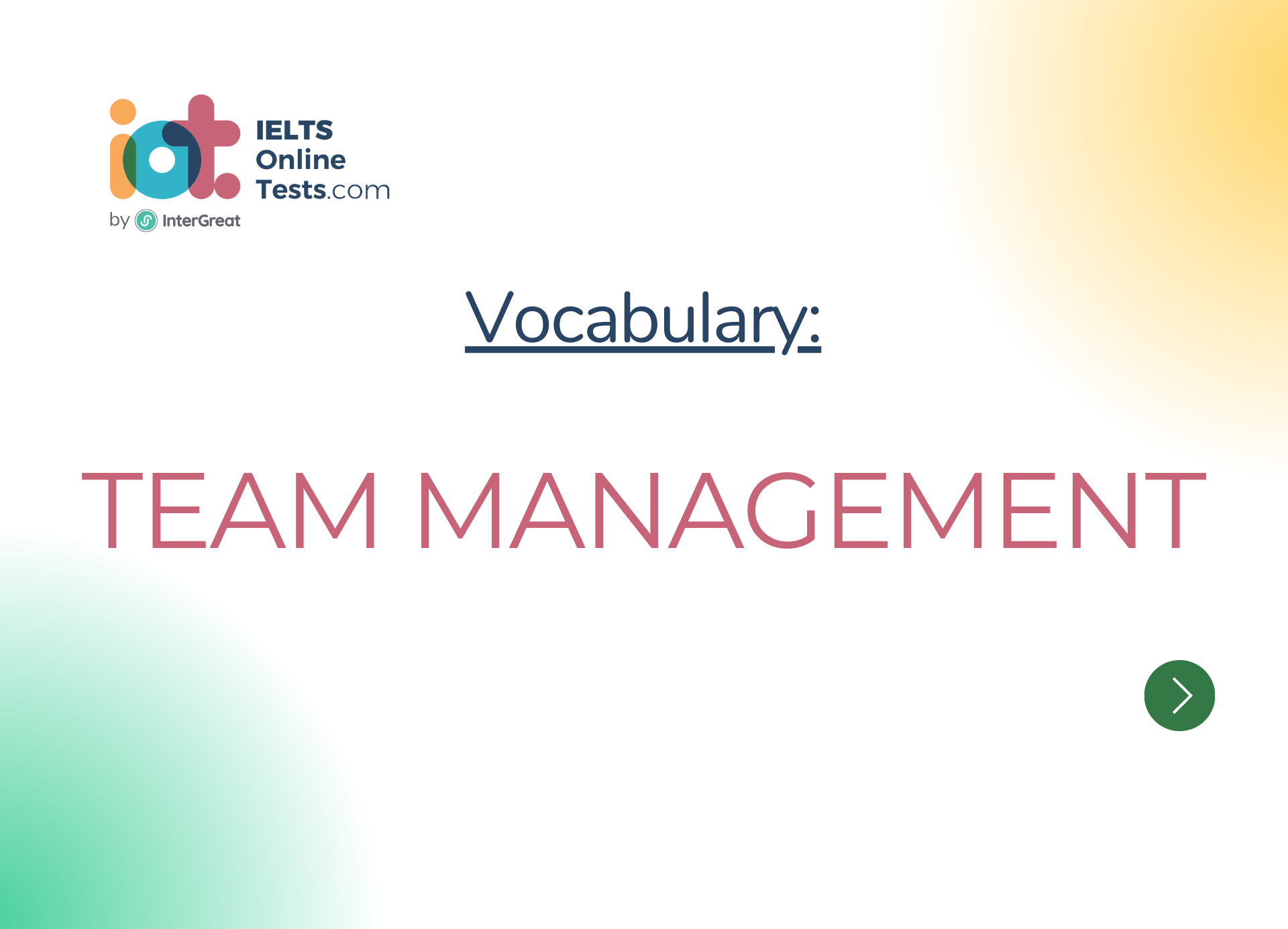
Team management
Here's a detailed list of vocabulary related to team management for the IELTS band score 4.5-6.0:
Team Management:
The process of guiding and coordinating a group of individuals to work together effectively.
Team Building:
Activities and strategies aimed at improving cooperation and collaboration within a team.
Leadership:
The ability to guide and inspire team members towards achieving common goals.
Communication:
The skill of effectively conveying information and ideas among team members.
Delegation:
Assigning tasks and responsibilities to team members based on their skills and expertise.
Motivation:
Encouraging and inspiring team members to give their best effort.
Conflict Resolution:
Addressing and resolving disagreements and conflicts within the team.
Goal Setting:
Defining clear and measurable objectives for the team to achieve.
Feedback:
Providing constructive feedback to team members to improve their performance.
Decision-making:
The process of reaching agreements and making choices within the team.
Problem-solving:
Analyzing challenges and finding effective solutions as a team.
Time Management:
Efficiently utilizing time and resources to meet deadlines and achieve goals.
Trust Building:
Developing a sense of trust and mutual respect among team members.
Collaboration:
Working together cooperatively and sharing responsibilities.
Empowerment:
Giving team members the authority and autonomy to make decisions.
Accountability:
Taking responsibility for individual and team actions and outcomes.
Inclusivity:
Creating an environment where all team members feel valued and included.
Diversity:
Embracing and leveraging the diverse skills and perspectives within the team.
Performance Evaluation:
Assessing and measuring team members' contributions and achievements.
Task Allocation:
Distributing tasks and projects among team members based on their strengths.
Team Dynamics:
The interactions and relationships among team members.
Interpersonal Skills:
The ability to interact effectively and respectfully with others.
Adaptability:
The capacity to adjust to changing circumstances and challenges.
Crisis Management:
Handling unexpected challenges and crises as a team.
Team Cohesion:
The degree of unity and cooperation within the team.
Communication Channels:
Different methods of exchanging information within the team.
Feedback Loop:
Regularly exchanging feedback among team members and leaders.
Task Prioritization:
Determining which tasks are most important and should be addressed first.
Group Decision-making:
Making decisions collectively as a team.
Team Objectives:
Clear and specific goals set for the entire team.
Collaborative Environment:
Fostering an atmosphere where teamwork is encouraged and valued.
Team Performance:
Assessing the overall effectiveness and productivity of the team.
Team Meetings:
Scheduled gatherings where team members discuss progress and challenges.
Virtual Teams:
Teams that collaborate remotely using technology.
Team Roles:
Identifying and assigning specific roles and responsibilities to team members.
Team Norms:
Shared expectations and rules of behavior within the team.
Effective Communication:
Clear and concise communication that avoids misunderstandings.
Performance Improvement:
Strategies for enhancing team members' performance.
Empathy:
Understanding and considering the feelings and perspectives of others.
Conflict Management Strategies:
Techniques for handling conflicts constructively within the team.
Understanding these team management terms will help you discuss the skills and strategies needed to lead and work effectively within a team. Good luck with your IELTS preparation!




